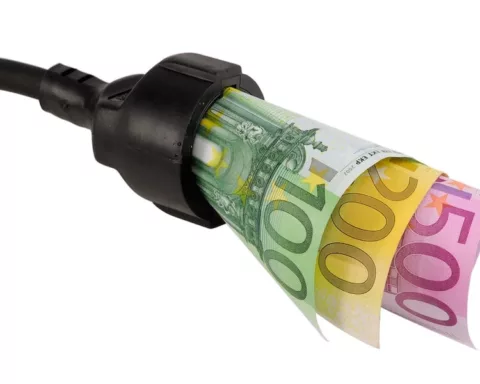The aim of the evaluation was to allow the Commission to determine whether it should let the HBERs lapse, prolong their duration or revise them. In view of the findings of the evaluation, the Commission will now launch an impact assessment to look into the policy options for a revision of the rules.
Executive Vice-President Margrethe Vestager, in charge of competition policy, said: “The evaluation has shown that the rules on horizontal agreements between companies and the Horizontal Guidelines are useful tools for businesses. At the same time, the evaluation has identified several areas where the rules are not sufficiently adapted to digitisation and the pursuit of sustainability goals. The Commission will now reflect on how to revise these rules in order to ensure that they remain fit for purpose.”
In July 2019, the Commission launched the review of the HBERs, which will expire on 31 December 2022. In parallel, the Commission launched the review of the accompanying Horizontal Guidelines. During the evaluation, the Commission collected evidence to understand how the rules have functioned since their adoption in 2010 and 2011. This evidence includes, notably, stakeholder contributions gathered in a public consultation that took place between November 2019 and February 2020. In addition, the Commission took into account the responses received in reply to the 2020 call for contributions on Competition Policy and the Green Deal.
The Commission also commissioned an external evaluation support study, in order to assess more in-depth the effectiveness, relevance and efficiency of the HBERs and the Horizontal Guidelines. The final report of the study is also published today.
The findings of the evaluation
The evaluation has shown the following:
- The HBERs and the Horizontal Guidelines are still relevant, as they provide legal certainty to businesses with respect to their horizontal cooperation agreements and they simplify administrative supervision by the Commission, the national competition authorities and national courts.
- Several areas were identified where their effectiveness can be improved. In particular, the HBERs and Horizontal Guidelines need to be adapted to economic and societal developments, such as digitisation and the pursuit of sustainability goals. In addition, some of the provisions in the HBERs are viewed as rigid and complex, while others are considered unclear and difficult to interpret by businesses.
More specifically, the evaluation has identified a number of issues with regard to the functioning of the rules. These include the following:
- The conditions for exemption in the R&D BER may no longer allow for the identification of all pro-competitive R&D agreements. Stakeholders have questioned in particular the requirements for full access to the results of the R&D and access to pre-existing know-how.
- The scope of the Specialisation BER is considered too narrow. In addition, stakeholders have asked for more clarity on some of the definitions that set out the scope of the regulation.
- Stakeholders generally consider that safe harbours in the form of market share thresholds ease assessing whether an agreement could benefit from an exemption. Currently, the HBERs provide market share thresholds for R&D (25%) and specialisation (20%) agreements. In addition, the Horizontal Guidelines declare that joint purchasing and commercialisation agreements where the participants have only limited market power (15%) are also unlikely to have restrictive effects on competition. At the same time, many stakeholders also consider market definition and the calculation of market shares complex and burdensome. In addition, some stakeholders consider that the various market share thresholds are too low to exempt all horizontal agreements that comply with Article 101(3) of the Treaty.
- Some provisions of the HBERs and Horizontal Guidelines are considered unclear or overly strict, in particular with respect to information exchange, R&D, production, commercialisation and standardisation agreements.
- In addition, the HBERs and the Horizontal Guidelines offer limited guidance with regard to market developments that have taken place over the last ten years, notably digitalisation and the pursuit of sustainability objectives through horizontal agreements.
- Lastly, stakeholders consider that the Horizontal Guidelines do not provide sufficient legal certainty for the self-assessment of agreements that do not have a dedicated chapter, such as agreements pursuing sustainability objectives, data sharing, data pooling and network sharing agreements.
The evaluation concluded that addressing these issues would improve legal certainty. This would also simplify administrative supervision by the national competition authorities and national courts.
Next steps
During the next weeks, the Commission will launch the impact assessment phase of the review to look into the issues identified during the evaluation with a view to having revised rules in place by 31 December 2022 when the current rules will expire.
Stakeholders will have the possibility to comment on the inception impact assessment and to provide their views in the context of a public consultation, which is planned for the middle of this year. At the beginning of next year, the Commission will publish a draft of the revised rules for stakeholder comments.
Background
Horizontal cooperation agreements are agreements entered into between two or more undertakings operating at the same level in the market. Horizontal cooperation relates in most cases to cooperation between actual or potential competitors in areas such as R&D, production, purchasing, commercialisation or standardisation. It can also involve information exchange, either as a self-standing agreement or in the context of another type of horizontal cooperation agreement.
Article 101(1) of the Treaty on the Functioning of the European Union (“TFEU“) prohibits agreements between undertakings that restrict competition. However, under Article 101(3) TFEU, such agreements can be declared compatible with the Single Market provided they contribute to improving the production or distribution of goods or to promoting technical or economic progress, while allowing consumers a fair share of the resulting benefits without eliminating competition.
The R&D BER (Commission Regulation (EU) No 1217/2010) exempts different types of horizontal R&D agreements that meet certain conditions from the prohibition in Article 101(1) TFEU. The Specialisation BER (Commission Regulation (EU) No 1218/2010) exempts unilateral and reciprocal specialisation agreements and joint production agreements that meet certain conditions from the prohibition in Article 101(1) TFEU. Thus, the HBERs create a safe harbour for those types of agreements. Together with these HBERs, the Commission also adopted the Guidelines on the applicability of Article 101 of the Treaty on the Functioning of the European Union to horizontal co-operation agreements. These provide guidance on how to interpret and apply the HBERs and how to assess R&D and Specialisation agreements but also other horizontal cooperation agreements not explicitly covered by the HBERs.






